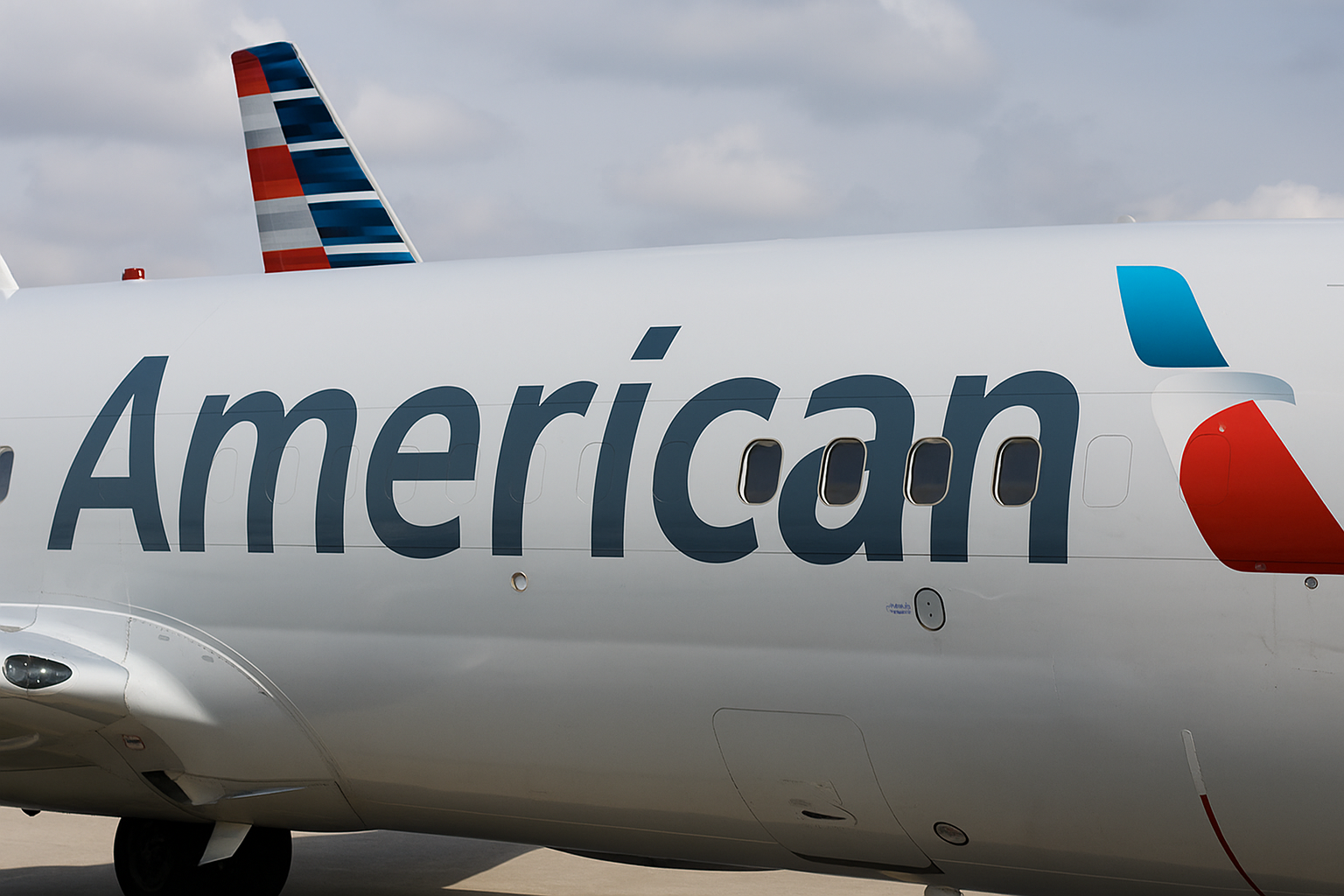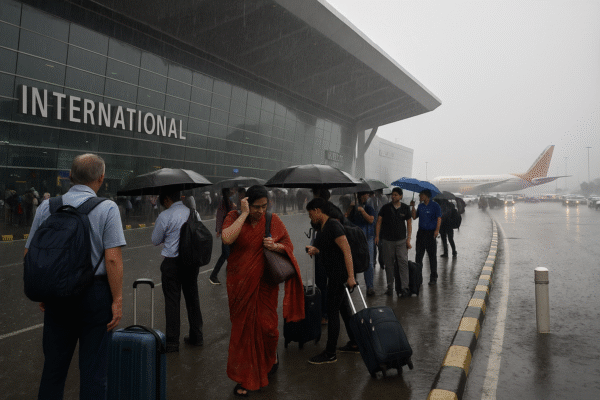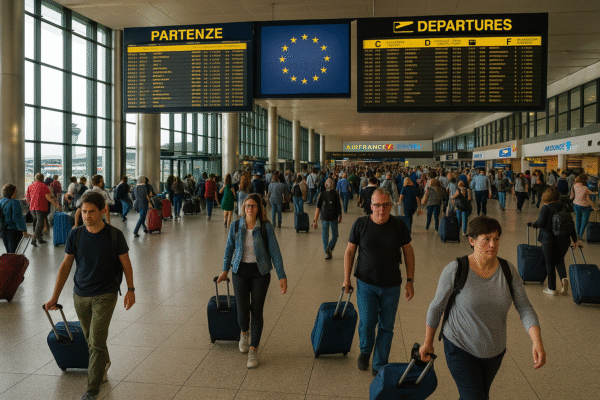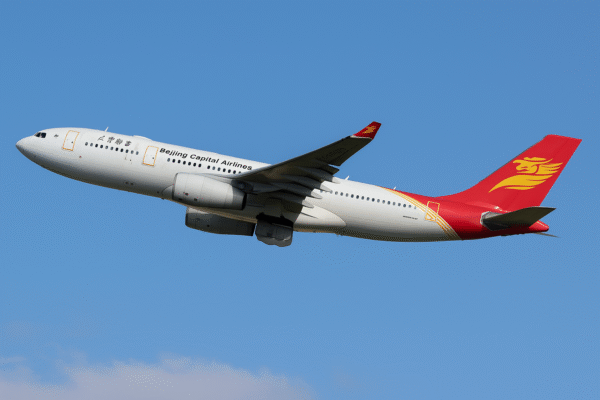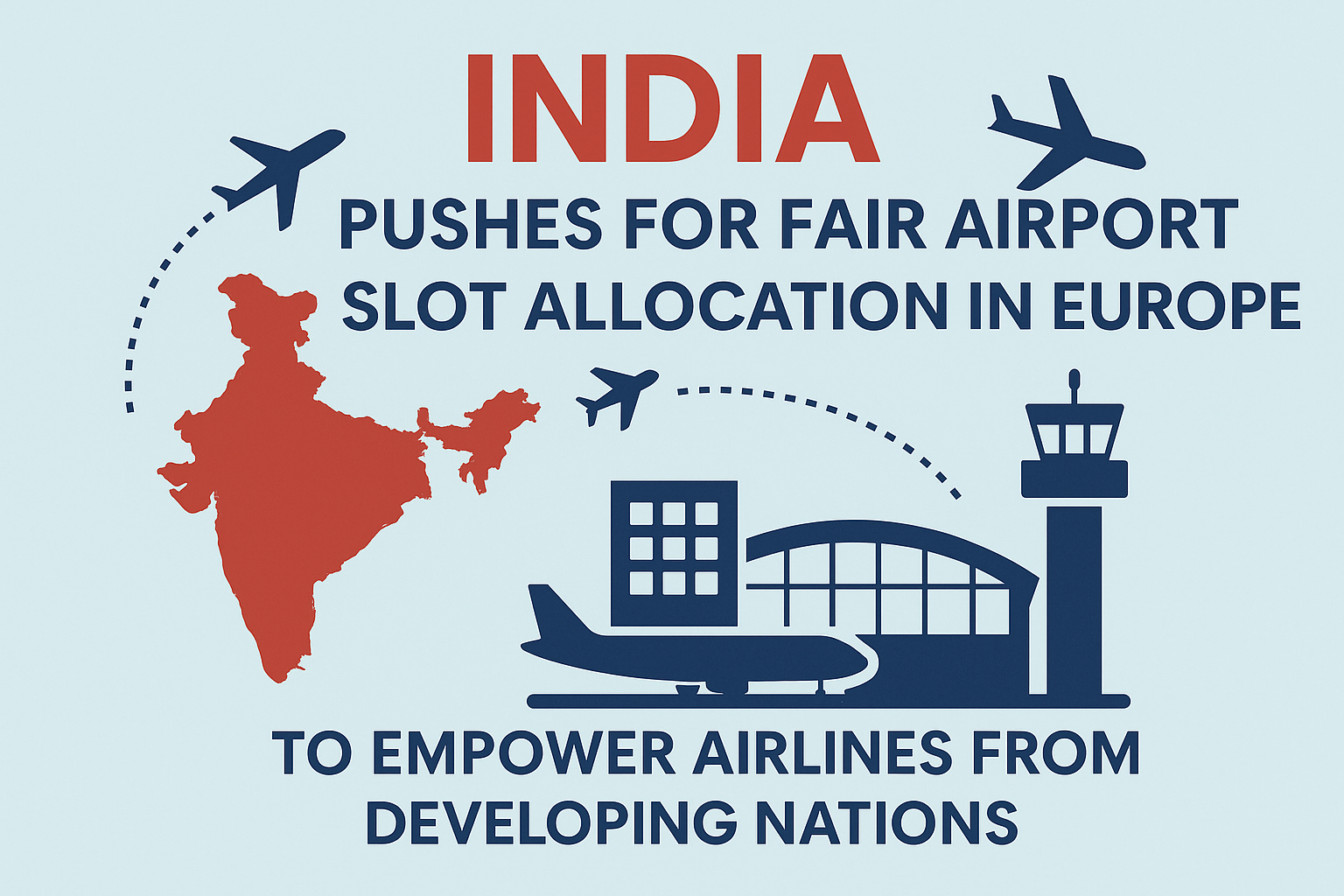New Delhi, India — India has taken a bold step on the global aviation stage, calling for sweeping reforms in how major European airports allocate take-off and landing slots. At the upcoming International Civil Aviation Organisation (ICAO) Triennial Assembly in September 2025, India will present a detailed proposal urging the adoption of equitable slot allocation rules that give airlines from developing nations a fair shot at operating in high-demand hubs such as London Heathrow, Amsterdam Schiphol, and Paris Charles de Gaulle.
This move is aimed at dismantling long-standing practices that critics say overwhelmingly benefit established carriers from developed countries, leaving little room for emerging market airlines to grow their international footprint.
Understanding the High Stakes of Airport Slot Allocation
Airport slots are specific time windows assigned to airlines for take-off or landing at capacity-constrained airports. They are a critical determinant of an airline’s ability to serve lucrative routes, connect with global markets, and participate in competitive tourism flows.
Currently, many of these prime slots at Europe’s busiest hubs are controlled by long-established airlines under “grandfather rights” — a system allowing carriers to retain slots indefinitely as long as they are used a set percentage of the time. This has created a bottleneck for new entrants, especially carriers from developing countries like India, which often find themselves shut out despite growing demand and available bilateral traffic rights.
India’s Case: Level the Playing Field for All Nations
The Government of India argues that the status quo runs counter to the principles of fair competition and equal market access. Indian carriers such as IndiGo and Air India, both pursuing aggressive international expansion strategies, have faced significant hurdles in securing prime slots in Europe despite bilateral agreements that grant them operating rights.
For example, while Air India operates 31 weekly flights to London Heathrow under the enhanced India–UK agreement, lack of additional slots has forced it to divert expansion to London Gatwick instead. IndiGo, too, has struggled to gain access to Amsterdam Schiphol, where Dutch authorities are simultaneously seeking to reduce flight movements for environmental reasons.
Night curfews at major airports like Heathrow further restrict flexibility, particularly for new entrants without historical slot allocations.
ICAO’s Role in Global Aviation Fairness
India’s proposal to ICAO calls for the creation of globally consistent, inclusive slot allocation guidelines. The recommendations include:
- Reserving a percentage of slots at capacity-constrained airports for carriers from developing nations.
- Periodic reallocation of underused or strategically hoarded slots.
- Greater transparency in the slot bidding and allocation process.
- Flexibility in operations to accommodate long-haul intercontinental flights from emerging markets.
India believes these reforms will not only benefit its own carriers but also promote tourism and economic growth in developing regions worldwide.
Boosting Global Tourism and Trade
According to the United Nations World Tourism Organization (UNWTO), equitable air connectivity is one of the strongest enablers of sustainable tourism growth. For India, which welcomed over 10 million foreign tourists in 2024, improved direct connectivity to European hubs could dramatically increase visitor arrivals, particularly from high-spending markets in Western Europe.
Similarly, easier access for European tourists to Indian cities — beyond New Delhi and Mumbai — could support growth in cultural, wellness, and adventure tourism across states like Rajasthan, Kerala, and Himachal Pradesh.
From a trade perspective, enhanced air cargo routes between India and Europe could accelerate exports in pharmaceuticals, textiles, and perishable goods, strengthening bilateral economic partnerships.
The Airline Perspective: IndiGo and Air India
IndiGo, Asia’s largest low-cost carrier by market value, is actively targeting long-haul expansion with its new Airbus A321XLR fleet set to arrive in 2026. Gaining slots at key European hubs would allow the airline to offer competitive nonstop services to destinations such as Amsterdam, Paris, and Frankfurt.
Air India, now under the Tata Group, is pursuing a transformation plan with over 470 new aircraft on order. The airline aims to reestablish itself as a leading global player, but securing additional slots at airports like Heathrow remains a priority for its Europe strategy.
Both carriers agree that fair slot allocation is essential for competing on equal terms with established European airlines and delivering seamless connectivity for passengers.
Addressing Environmental and Community Concerns
While India acknowledges the environmental challenges faced by European airports, it argues that solutions such as night curfews or flight caps must not be applied in ways that disproportionately harm developing nation carriers. Instead, ICAO-led reforms could integrate sustainability measures alongside equitable slot allocation, ensuring that both climate goals and fair competition are addressed.
Looking Ahead: September 2025 ICAO Assembly
The upcoming ICAO Assembly in Montreal will be the stage for India’s reform proposal. If successful, it could lead to a global framework ensuring that all airlines — regardless of their home country’s economic status — have a fair chance to access high-demand international markets.
Such changes could spark a new era of tourism and trade, benefiting not just India but also other developing nations in Asia, Africa, and Latin America facing similar challenges.
Conclusion:
India’s push for fairer European airport slot allocation is more than a commercial fight for IndiGo and Air India — it’s a call for a rebalanced global aviation system that values equitable access as much as efficiency and safety. By championing reform through ICAO, India is positioning itself as a leader in promoting fairness, inclusivity, and sustainable growth in the skies.
If adopted, these reforms could open new pathways for global tourism, deepen cultural exchange, and give developing nations a stronger voice in shaping the future of international air travel.
For more travel news like this, keep reading Global Travel Wire






